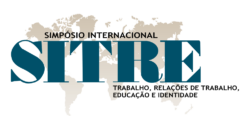Coordinators: Profa. Dra. Ediméia Maria Ribeiro de Mello (Associação Brasileira de Pesquisadores em Economia Solidária); Profa. Dra. Lucília Machado (UFMG)
Summary: The Covid-19 pandemic arrived in Brazil in mid-February 2020 and brought major impacts on workers in the productive sectors most affected by social isolation measures, as well as on informal workers, in this era of neoliberal policy prevalence. The former is threatened by the reduction in activities and the consequent reduction in income and unemployment, in the face of a reality of the loss of legal rights in labor relations. Informal workers (about 38.3 million people, according to the IBGE) suffer from having their sources of survival reduced, if not eliminated, since the realization of their demand often depends on the physical approach of customers and/or suppliers. Most of these workers, deprived of reserves to face crises, have the options of exposure to contagion or deprivation of indispensable needs. For the unemployed, who are minimally covered by the labor legislation, the options include joining the informality group or welcoming by solidarity networks, at a time when they may be subject to the same problems. This WG proposes to debate the implications of the pandemic and its associations with the serious economic crisis of the current capitalism for, particularly, these two groups of workers. It is proposed to stimulate reflection on ways of coping with this difficult situation, with emphasis on public policies (health, income, and education), from the point of view of their qualitative and quantitative capacities to safeguard them effectively. Thus, the objective is to contribute with analyzes and diagnoses about the unprecedented adverse scenario in Brazilian society, as well as suggestions and justifications for the improvement of public policy that will meet the most vulnerable populations in crises.
